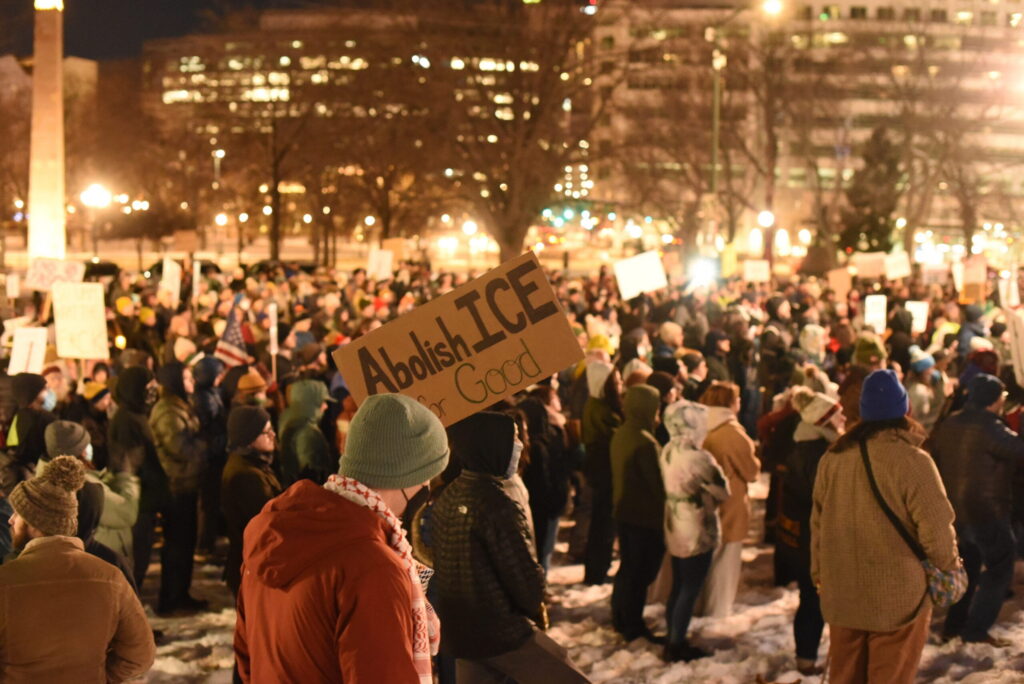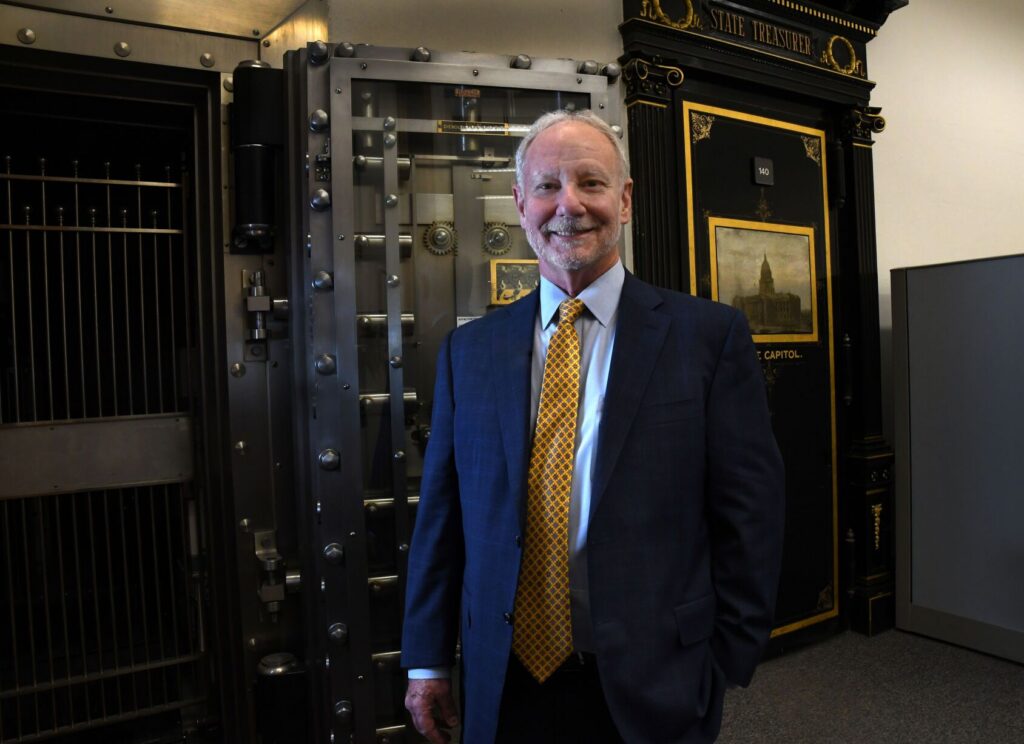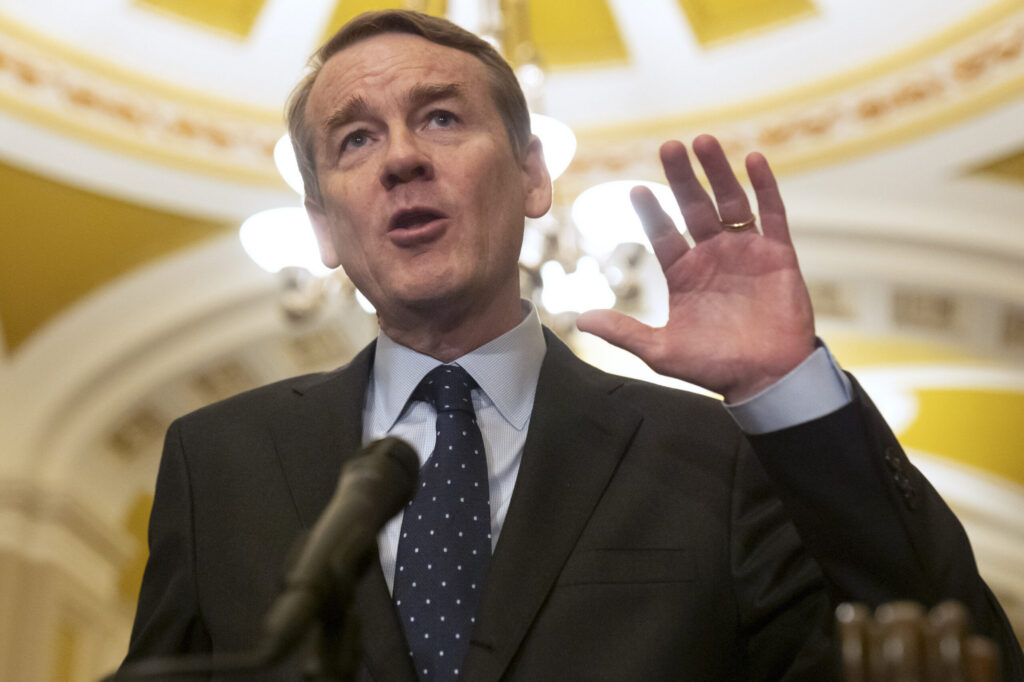Rep. Justin Everett calls Democrats’ olive branch ‘bunk’
If you want a straight answer, see Justin Everett, the Republican from Littleton who has no political filter. His view on Democrats’ pledges to make transportation a priority can be summed up in one word: “Bunk.”
After Gov. John Hickenlooper’ State of the State message last Thursday, most seemed, well, giddy that Democrats were ready to make some sacrifices to widen interstates and fix bridges (as long as not too much of the money came from the state budget).
“I heard a lot of rhetoric,” Everett said. “This is my fifth State of the State, something like that. He talks about more revenue for roads, for example, and then he talks about more spending for broadband, so why are we spending maybe $200, $300 million more on broadband, when as we’ve seen over the last five years, more and more spending instead of making roads a priority? So again, there’s a huge conflict in his speech.
“The rhetoric we’ve seen from that side and the governor’s office, especially on transportation, it’s just bunk. And since we’ve spent $5 billion more in the state budget since I got down here in 2013, we’ve seen an expansion in Medicaid and all this extra spending, why don’t we make spending a priority?”
He actually agreed with Democratic House Speaker Crisanta Duran, who cited the everyday expense of people driving on bad roads.
“I hate when my new car hits a pothole, as well,” he said, cribbing from Duran’s Wednesday speech. “Well, then why don’t we make it a priority and cut the rhetoric?”
The Republicans are in the minority deeply, 37-28, in the House. That won’t stop them from trying to pass a doomed agenda of expanded gun rights; religious liberty that allows businesses to cite religion to deny services to gay people; parental choice on things like vaccinations and education.
Again, he thought Democrats were talking out of both sides of several mouths last week.
“Case in point: You heard the speaker’s speech yesterday and the governor’s speech today talking about representing all citizens,” Everett said. “We saw recalls over gun rights. We saw so many people come out over gun rights, so if they actually want to listen to citizens, then let’s listen to citizens and pass this legislation instead of this partisan b.s.”
He surmised Hickenlooper has higher political ambitions once he’s term-limited out of office in two years, pointing to how Hickenlooper is tailoring his message and controlling his audience to seem more bipartisan than he is.
Then Everett laid down some righteous partisanship of his own that plenty of people on the left side of the chamber would call b.s.
“Why would you be against religious liberty? It’s an issue of freedom,” he said. “What we saw yesterday is the Democrats didn’t stand up when Rep. (Patrick) Neville got up and spoke about freedom and liberty, core American values. No Democrats got up in applause. Do they not support freedom and liberty?”
Well, Democrats see denying services, based on someone’s sexual orientation, as unAmerican, akin to denying services based on skin color. Rep. Paul Rosenthal, a Denver Democrat and a leader of the the House LGBT Caucus, has characterized such logic as partisan word play.
“The sense of having religious liberty is a little bit deceptive,” he told me in 2015. “Because there are a number of people who are quite devout in any number of faiths who supported marriage equality for LGBT-Americans. This is one faction of the religious community that has taken this cause, and it will persist, even though the Supreme Court has now said we’re equal citizens under the law. It’s sad. It’s unfortunate. And I think it’s deceptive.”
In 2015, Neville, now the House Republican leader, sponsored two bills: one to bar the state from doing anything to “burden” anyone’s exercise of religion, which will be argued again this session, and one to shield people who refused to engage in art or speech that offends their religion.
Both fail 7-4 in a Democrat-led committee. Neville said it was the government practicing discrimination against individual religious beliefs.
“It’s incredibly unfortunate that we’ve had discrimination in this country all the way back to the Jim Crow laws,” he said. “The worst kind of discrimination, though, is when the government is the discriminator.”











